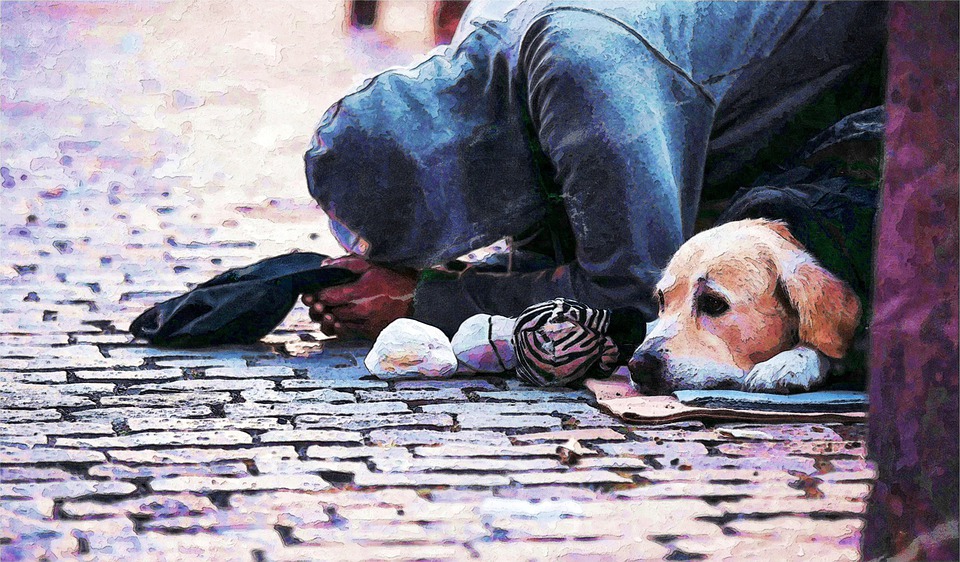A friend once told me about a close friend of hers who couldn’t accept her vegetarianism. He regularly confronted her with the same old arguments about why people should eat meat. She got quite frustrated arguing with him, trying to change his way of thinking and consuming. When she asked my opinion about it, this is what I answered. (In English, since that was our common language.)
Hello J.,
so here are some thoughts about the meat eater dilemma:
(1) First of all, for me it helps to accept that we don’t change and finally abolish a pretty crappy system (capitalism and national-statealism) by changing our own consumption behaviours. So whether somebody eats meat or not, eats organic or not, buys fair trade or not, buys from big corporates or not – at the end of the day that doesn’t stop exploitation and injustice. We only tend to think so very often, because we are children of this system which degrades free people (or, if you want, citizens) to consumers. Even many NGOs don’t tell us anything better than: Change your own consumption, because you have the consumer’s power. I think the whole idea of consumer’s power is a (typical capitalistic) delusion to prevent us from REALLY changing the crappy system. A convenient idea for corporates and states to push away every responsibility for the bullshit they’re (in this system: necessarily) doing.
That doesn’t mean that it’s completely unimportant what you consume. It’s important for the specific animal whether it’s kept in prison or not. And it’s important that many people tried something like organic farming so that it’s proven now that organic farming is a very good method of nourishing people more sustainable on a big scale. But much more important than what we consume is that we inform ourselves independently, take society and our ability to change it seriously, discuss about society with our friends and then (most important) organize. Which means building groups and networks and (non-hierarchical) structures that enable us to get active in whatever field we want and to fight for our freedom with all the power we (de facto) have. If one person stops functioning as part of the machine, the person gets isolated and punished. If 1000 well-organized people stop functioning, they can seriously threaten the injust structures and are already building a new world.
So, summarized: I think that those who profit from our gruesome system are pretty happy if we keep ourselves busy telling each other what to consume and what not to consume.
A funny book about this: „As the world burns – 50 simple things you can do to stay in denial“.
(2) Putting that aside, of course I also know the feeling you described. :o) My beloved friend T. also was „just a normal meat eater“ when I met her. If you want to influence peoples‘ behaviour, it takes different strategies for different people. I think there are some (like me) who respond to moral preaching and obvious attempts to missionize them. And then there are others (I guess that’s the majority) who don’t want and can’t be missionized. They feel confined in their freedom very quickly and then don’t react at all or just react in a short-term way (unfortunately, they don’t recognize their nation-state-capitalistic everyday brainwash as such a confinement). So the best you can do to change these peoples‘ behaviour is to just give them an example of how they could easily live up to their own values (and by that get more satisfaction).
T., for example, was fed up with animal rights activists trying to change her by preaching and showing gruesome images. The only way I could change her behaviour was exactly not talking about what she should do, but talking about me and what I do. And only when she asked me. Talking about and showing her my feelings concerning the exploitation of animals, without raising the pressure on her, made her think instead of defend herself.
I guess that’s the most important point: People have these conflicts in themselves („is it OK to eat animal products?“). Normally they put them aside or answer them like „it’s impossible not to eat animal products“. When a vegan like me shows up, they feel provoked, because here is the living proof that it IS possible not to eat animal products. So their inner conflict opens up again. But, lucky for them, there is just this guy (me) around on whom they can project one part of their inner conflict: The (formerly inner) part that said „it’s not OK“ can be externalized by giving me the role of saying it. If I accept this role, they feel relieved, because instead of having to deal with their own inner demons, they now just have to deal with a typical missionizing vegan, and that’s much easier. If I accept this role and step into the discussion, I’ve already lost. Because either I can’t answer all their tricky arguments to their content (if I leave unanswered only one argument, however constructed it is (like this one: „If you were starving on an island, and there was only a pig and a human around, …“), they feel that they have won the battle and definitely don’t have to change their behaviour). Or I „win“ the discussion by giving rational answers to all their weird questions and arguments, but then I have proven that vegans are fun-free, embittered people who don’t enjoy themselves but instead always have to tell others what’s right or wrong, and that although it might be possible to become vegan, it’s definitely not adorable and it doesn’t make society a nicer place.
That’s why, whenever somebody asks me a question which in my opinion is not a question out of real curiosity but out of the desire to get me into this theatre play, I react by saying something like: „Oh ya, that’s an interesting question. There’s a good book/website I read dealing with this, quite fascinating. It’s called xxx. If you want, I can send you an e-mail with the title/URL.“ (So in case they are really interested, later on they’ll find answers to their questions, but have to deal with them themselves.) And then (very important) change the topic to something else and present yourself (that’s the exhausting part) as a very fun-loving and friendly and not-at-all missionizing person for the rest of the evening. Or at least happier than they are. Make them envy you and your food and your peaceful lifestyle. :o)
A good book about this: „Living among meat eaters: The vegetarian’s survival handbook“.
(3) Thirdly, it’s helpful to remember that for some people (like me) it’s easier to live their lives „black and white“ (which means either do things a lot or don’t do them at all) while for (I guess) the majority of people it’s easier to live their lives „grey-shaded“. So while I am the perfect vegan (for me it’s much easier not to eat animal products at all than to eat only a little bit of them, because I need a clear rule for my everyday eating decisions) for others the idea of avoiding something 100%ly is just not the way they organize their everyday lives. And I admire them. Because they don’t need a questionable tool like giving themselves a label („I am vegan“) for reducing a habit that they don’t like. My friends C. and T. are like this. For them it’s an absurd idea to reduce their own freedom by giving themselves a label and a 100%-rule. They just reduced their consumption of animal products very very much, without a rule. And I think, regarding this aspect, they are more mature than me. If I wouldn’t have my „I am a vegan“-tool, I would just consume as much animal products as ever.
OK, that’s enough talking for today. :o) I hope I didn’t bury you under my words. I’m curious about your opinion about it!
Best wishes and have a wonderful time.
/E.




